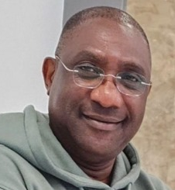By: Sammy CRABBE
In Part 1, I argued that Ghana’s education system is long overdue for a radical redesign. We explored how institutions like Legon could be leased—yes, for one dollar—to proven global academic and religious consortia capable of transforming them into world-class universities.
We proposed shifting government’s role from direct management to strategic support, using savings and GETFund resources to ensure access for brilliant but needy students. That is only the beginning.
If Ghana is to truly leapfrog into the 21st century and become a global player in the digital economy, we must connect these educational reforms directly to our broader economic vision—starting with the One Square Mile initiative.
Education must not simply exist as a siloed system. It must be tightly integrated with national strategy. In short, we must design our education system as the foundation for digital transformation.
Education must feed directly into innovation
The One Square Mile is not just a zoning project—it is a vision for Ghana’s future. It will be our innovation hub, our technology district, our launching pad for the digital economy.
But without the right people—equipped with the right skills, values, and work ethic—it will be just another fancy real estate project. We cannot afford that.
This is why our reimagined universities must become feeders to the One Square Mile. Their curricula should be aligned with national development priorities.
Academic departments must be restructured to reflect the skills needed in fintech, digital health, artificial intelligence, software engineering, digital logistics, cybersecurity, and renewable energy. Students should not graduate with theories—they should graduate with prototypes.
Let’s establish digital apprenticeship pipelines where students from these reformed universities spend their final years embedded within One Square Mile firms.
Let’s incentivize companies to sponsor innovation labs, mentor students, and co-develop projects with universities. This ecosystem will not only deepen our talent pool but create the kind of real-world experience that global investors are looking for.
We must rethink accreditation and standards
Part of the failure of our current education system lies in its rigid bureaucracy. Universities are boxed into outdated accreditation models that value paperwork over performance.
It’s time to empower an independent National Accreditation and Innovation Council—separate from the Ministry and GES—that evaluates institutions based on outcomes, not just inputs.
What percentage of graduates are gainfully employed within six months? How many startups emerged from the university?
What patents were filed? What social or technological innovations have been spun out into the economy? These are the metrics that matter in the 21st century—not how many lecture halls you built or how many professors were promoted.
This council must work hand in hand with industry leaders, diaspora professionals, and global innovators to ensure our standards are world-class, relevant, and forward-looking.
This also means empowering institutions to design interdisciplinary programs that reflect the complexity of today’s global challenges. A student should be able to combine AI with ethics, blockchain with agriculture, or software engineering with public health.
Diaspora and global partnerships: the multiplier effect
If we want to see rapid transformation, we must attract the best. That includes our first, second, and third-generation Ghanaians abroad, as well as African Americans and other Black professionals across the diaspora who are seeking meaningful work in a stable, promising environment.
Our reformed universities and the One Square Mile should be marketed as destinations for these individuals to teach, build, and belong.
We must offer incentives: tax holidays, residency fast-tracks, land for home development, and competitive salaries that reflect the value of their contributions. Let them come—not just to teach, but to set up companies, innovation hubs, and venture capital funds that invest in student-led solutions.
Partnerships must also be global. Ghana should not try to build a 21st-century education system with 20th-century tools.
We need MOUs with MIT, Stanford, ETH Zurich, the National University of Singapore, and others who have done this successfully. Let’s tap their expertise, co-develop programs, and position Ghana as a learning and innovation hub for West Africa and beyond.
Get government out of the way—and into its proper place
Let’s be clear: the government does have a role. But it is not to sit in Accra micro-managing timetables in Wa or hiring headteachers in Ho. The government’s role is to create an enabling environment—to fund access, enforce quality, and protect merit.
To that end, the Ministry of Education must become leaner, more strategic, and outcomes-driven. GES must transform into a regulatory body, not an employer. And public universities must enjoy true operational autonomy to experiment, excel, and evolve.
Every cedi the government saves from downsizing its bureaucracies must be reinvested into scholarships, digital infrastructure, and competitive faculty pay.
We must end the cycle of paying foreign lecturers more than local ones while lamenting the brain drain. If we want our brightest to stay—or return—we must value them accordingly.
Conclusion: this is about national survival
If we fail to reform our education system, all our other efforts will collapse. The One Square Mile will become a symbol of our inability to connect vision with execution. Our digital economy will remain a buzzword. And our young people will continue to view politics, not productivity, as the surest path to prosperity.
But if we act—boldly, strategically, and collaboratively—we can change the trajectory. We can turn our universities into engines of innovation, our students into global competitors, and our nation into a beacon of what’s possible when vision meets courage. It’s time to build—not just the digital economy, but the human economy that powers it.
>>>the writer is a PhD candidate specializing in blockchains and decentralized finance at the University of Bradford. He holds an MBA in International Marketing from the International University of Monaco. Sammy was the first president of the Ghana Business Outsourcing Association and developed Africa’s first data entry operation and Ghana’s first medical transcription company. He can be reached via [email protected]










